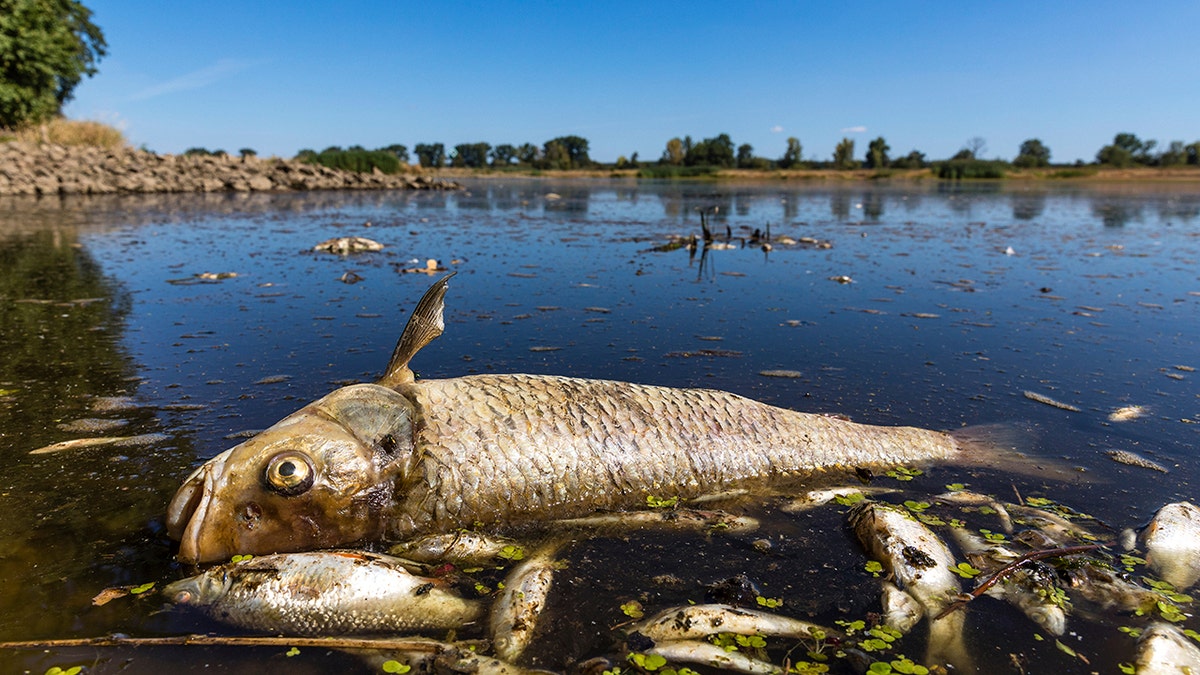Fox News Flash top headlines for July 3
Fox News Flash top headlines are here. Check out what's clicking on Foxnews.com.
- Last summer hundreds of thousands of fish were killed in the Ode River between Germany and Poland.
- Both countries blamed discharges of chemicals on the Polish stretch of the river for the killings.
- Germany has accused Poland of continuing to dump the deadly chemicals into the river even after the cause of the killings was discovered.
Germany's government accused Poland on Monday of failing to stop the dumping of pollutants that contributed to the deaths of hundreds of tons of fish in the Oder River, which runs along the border between the two countries.
The mass fish die-off last summer caused friction between Warsaw and Berlin, which both blamed chemical discharges on the Polish stretch of the river for promoting the growth of deadly golden algae. The environmental group Greenpeace said wastewater from Poland’s coal mines was most likely responsible.
"We see increasing signs that salts continue to be discharged (into the Oder)," German Environment Ministry spokesperson Christopher Stolzenberg said. "There has been no reaction by the Polish side to limit the salt discharge."
GERMAN PARLIAMENT APPROVES MEMORIAL TO JEHOVAH'S WITNESSES PERSECUTED BY THE NAZIS
He said a similar die-off could happen again this summer but noted that water levels and high temperatures were factors in producing golden algae.

A dead chub and other dead fish are shown floating in the Oder River near Eastern Germany on Aug. 11, 2022 (Frank Hammerschmidt/dpa via AP, File)
"We need to see what's going to happen in the next weeks and months," Stolzenberg told reporters in Berlin.
GERMAN POLICE WARN OF ‘BLUE PUNISHER’ ECSTASY PILL FOLLOWING 2 TEEN DEATHS
German officials have reached out to their Polish counterparts "at all levels" to raise awareness about the risk of another environmental catastrophe, he said.
"It can't be in anybody's interest to have a second such disaster," Stolzenberg said. "At the moment, the signs aren't good, and in the end, it's a question of time and also circumstances ... whether it could happen again."
CLICK HERE TO GET THE FOX NEWS APP
Aleksander Brzozka, a spokesperson for Poland’s Climate and Environment Ministry, said in a text message that the Polish government was in "constant touch with the German side and they exchange information on a current basis."
